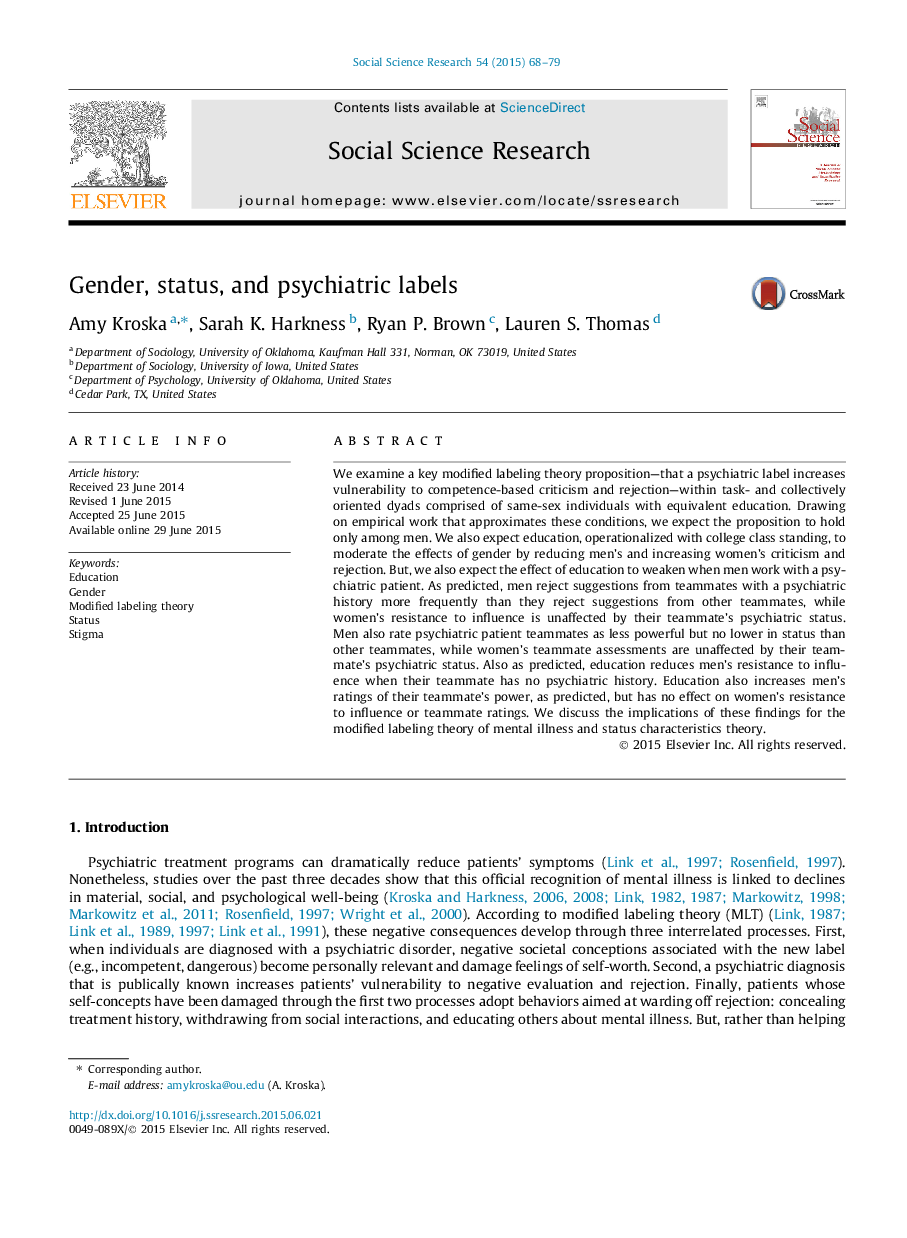| Article ID | Journal | Published Year | Pages | File Type |
|---|---|---|---|---|
| 955613 | Social Science Research | 2015 | 12 Pages |
Abstract
We examine a key modified labeling theory proposition-that a psychiatric label increases vulnerability to competence-based criticism and rejection-within task- and collectively oriented dyads comprised of same-sex individuals with equivalent education. Drawing on empirical work that approximates these conditions, we expect the proposition to hold only among men. We also expect education, operationalized with college class standing, to moderate the effects of gender by reducing men's and increasing women's criticism and rejection. But, we also expect the effect of education to weaken when men work with a psychiatric patient. As predicted, men reject suggestions from teammates with a psychiatric history more frequently than they reject suggestions from other teammates, while women's resistance to influence is unaffected by their teammate's psychiatric status. Men also rate psychiatric patient teammates as less powerful but no lower in status than other teammates, while women's teammate assessments are unaffected by their teammate's psychiatric status. Also as predicted, education reduces men's resistance to influence when their teammate has no psychiatric history. Education also increases men's ratings of their teammate's power, as predicted, but has no effect on women's resistance to influence or teammate ratings. We discuss the implications of these findings for the modified labeling theory of mental illness and status characteristics theory.
Related Topics
Social Sciences and Humanities
Psychology
Social Psychology
Authors
Amy Kroska, Sarah K. Harkness, Ryan P. Brown, Lauren S. Thomas,
